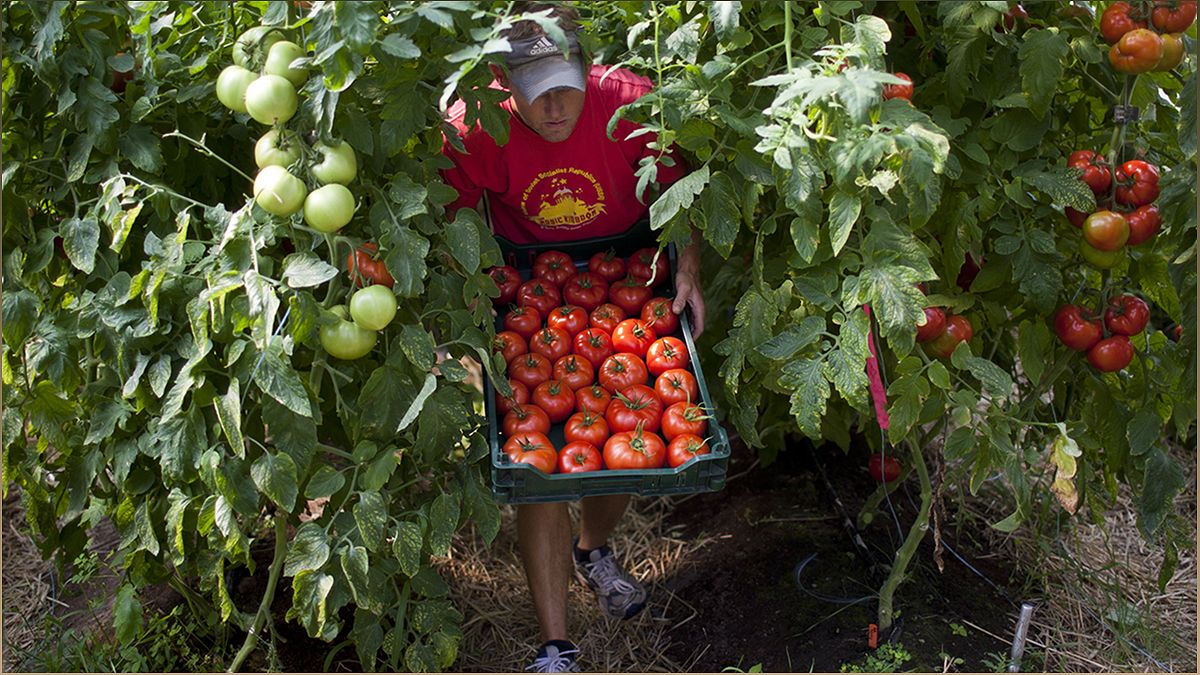Discover the significant growth of the organic farming industry in the United States, with a 56% increase in certified organic farms since 2011. Learn about the rising demand for organic food, government support for organic agriculture, and the health benefits associated with organic produce.
The Growing Trend of Organic Farming in the United States
The organic farming industry in the United States has experienced significant growth in recent years. According to data from the U.S. Department of Agriculture’s National Agricultural Statistics Service, there were over 14,000 certified organic farms in the country in 2016. This represents a 56% increase from 2011, with several states in the South seeing dramatic growth in organic farming.

( Credit to: Pewresearch )
While California continues to lead in the number of organic farms, other states have also made substantial progress. The sales of certified organic products have also seen a significant increase, with U.S. farms and ranches selling nearly $7.6 billion worth of certified organic goods in 2016. This is more than double the sales of $3.5 billion in 2011.
The Rise in Organic Farming and Consumer Demand
The rise in organic farming in the U.S. aligns with the increasing demand for organic food among Americans. Retail sales of organic foods have expanded rapidly since 1994, according to the USDA’s Economic Research Service. In 2015, the Organic Trade Association estimated that U.S. organic retail sales reached $43 billion, showing double-digit growth in most years since the establishment of national organic standards by the USDA in 2000.
A recent Pew Research Center report found that about 39% of U.S. adults say that most or some of the food they eat is organic, while 61% say that not too much or none of their food is organic. Higher-income families are more likely to consume organic food, with 48% of those making $100,000 or more per year saying that most or some of their food is organic.
Opinions on the health benefits of organic produce are divided among Americans. About half of U.S. adults (51%) believe that organic fruits and vegetables are neither better nor worse than conventionally grown foods, while 45% believe that organic produce is better. Younger Americans and those who consume at least some organic food are more likely to believe that organic produce provides health benefits.
Government Support for Organic Agriculture
The federal government has also been investing more in organic agriculture. The 2014 Farm Act provided support for organic producers, including assistance with the cost of organic certification. More recently, Congress passed a farm bill with funding for organic farming research, demonstrating the growing recognition of the importance of organic agriculture.
Certification and Standards for Organic Farming
To be certified organic, food must be produced without the use of conventional pesticides, petroleum- or sewage-based fertilizers, herbicides, genetic engineering, antibiotics, growth hormones, or irradiation. Certified organic farms must also adhere to specific animal health and welfare standards and not use prohibited substances on their land for at least three years prior to harvest. Farms that are not certified organic are not included in the analysis.
The Future of Organic Farming
The growth of organic farming in the United States reflects the increasing demand for organic food among Americans. With more people opting for organic products and the government providing support for organic agriculture, it is likely that the organic farming industry will continue to thrive in the coming years.
